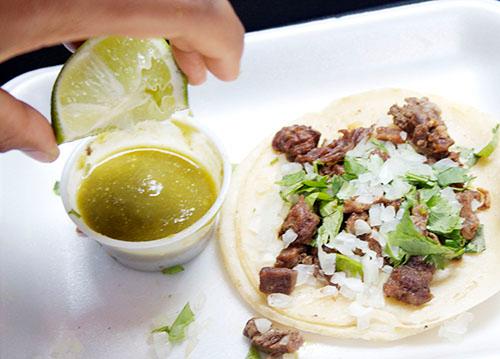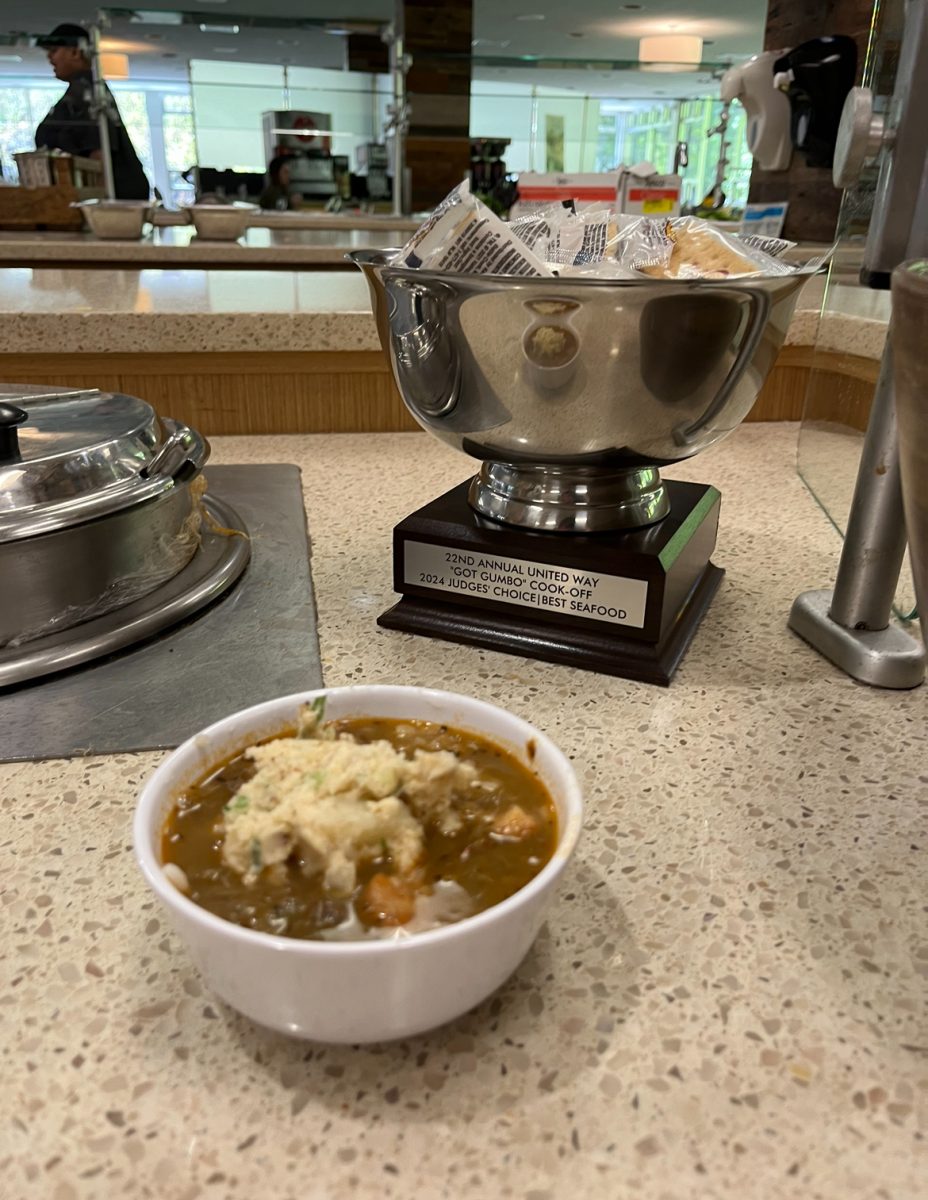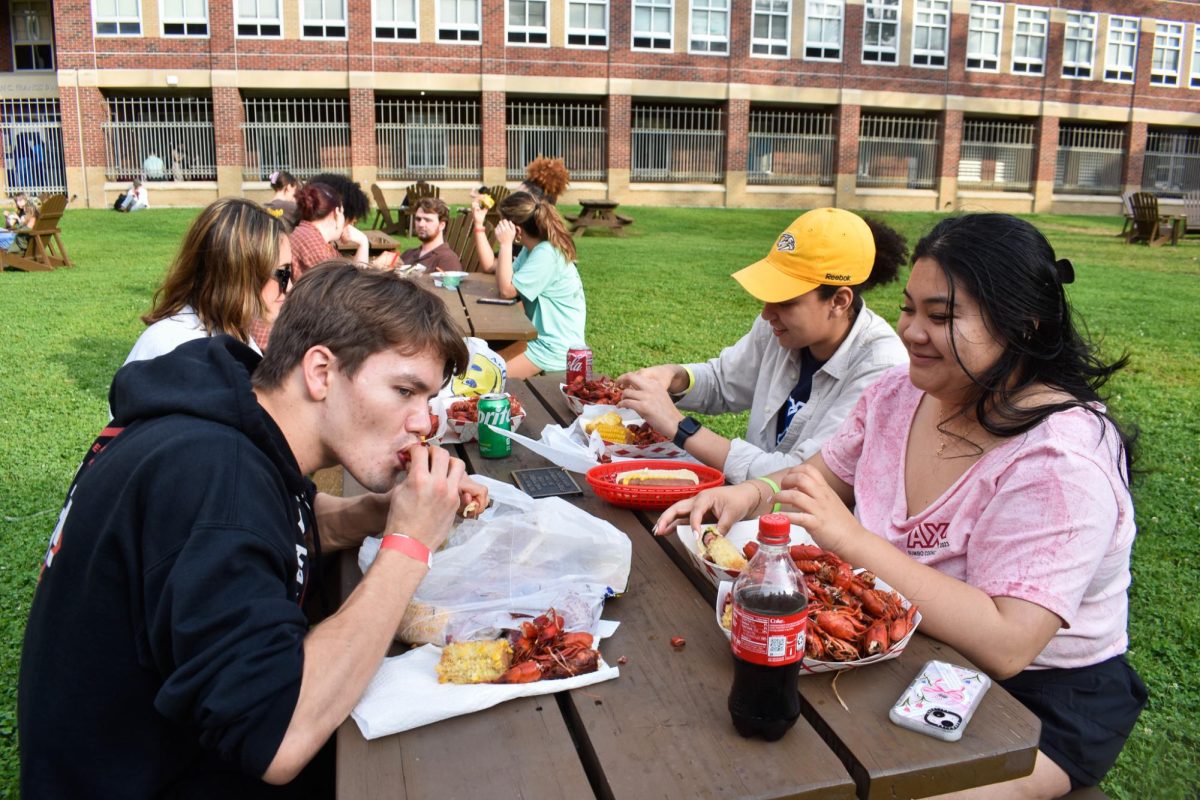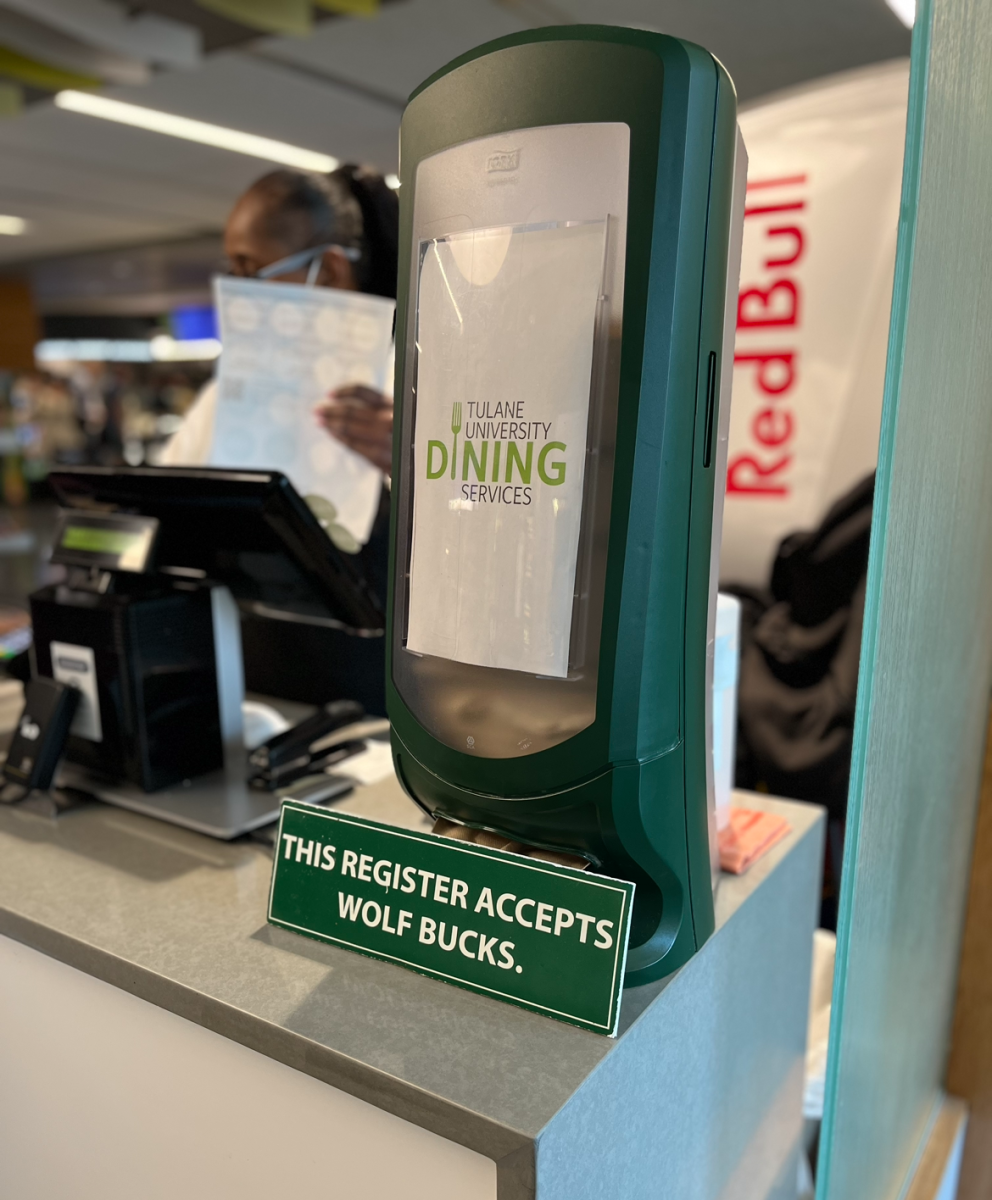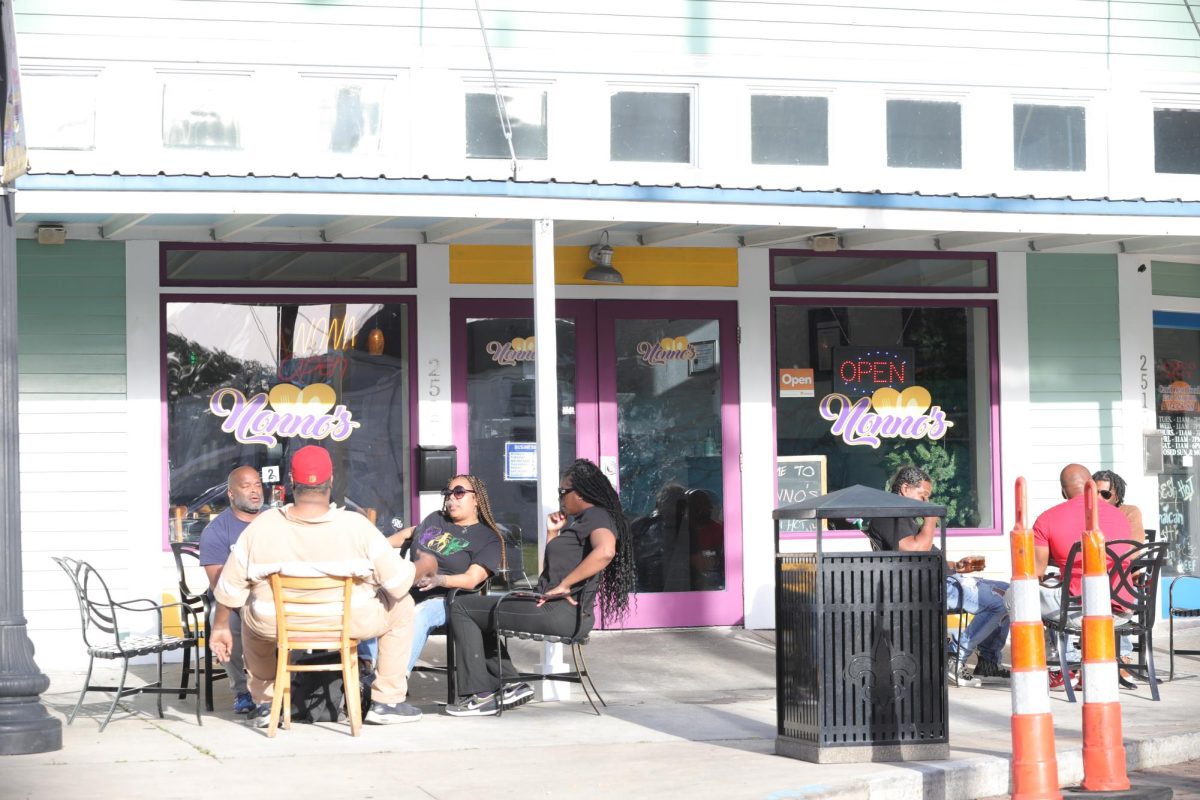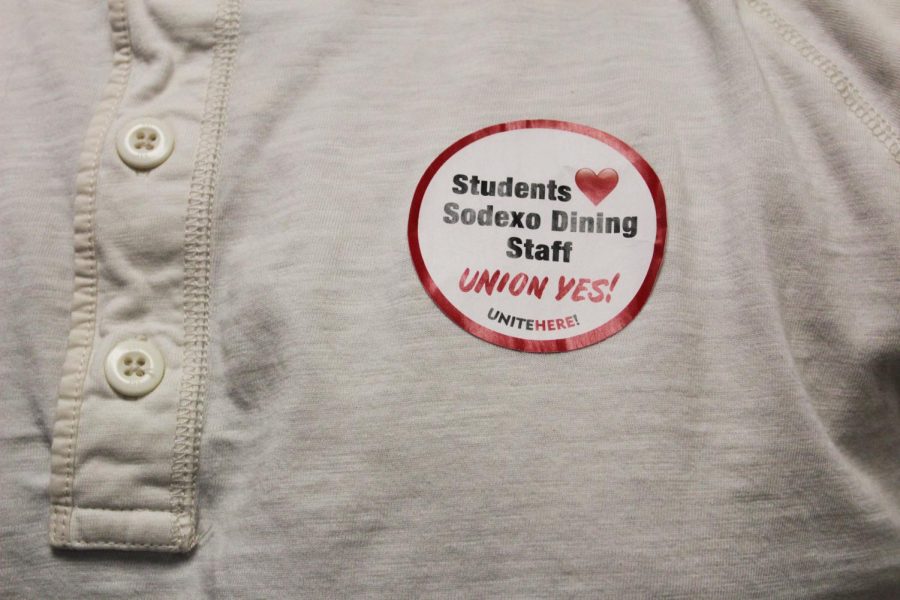When mass communication junior Charley Whitman first saw Ruben’s Taco Truck parked outside of The Palms Bar and Grill on Freret Street last year, he was a little skeptical. He thought it was just a little truck on the side of the road, but he went up and ordered some tacos anyway.
After taking the first bite, he was hooked, and since then he has eaten there numerous times.
“The food is up there as some of the best Mexican food in New Orleans. My favorite is anything with pineapple pork in it,” Whitman said.
Ruben’s Taco Truck, no longer outside The Palms, was a weekend staple for many students last year because it served up cheap, fresh and hot Mexican food. Hungry students, like mass communication junior, Margi Kalbacher, lined up to get a taste.
“It was right outside of the bar, and I get hungry when I’m drunk. It was also delicious,” Kalbacher said.
In the past few years, the New Orleans food industry has expanded to include this alternative type of food service. Rachel Billows, president of the New Orleans Food Truck Coalition and co-owner of La Cocinita Food Truck, said these trucks are basically “restaurants on wheels.” They have popped up all over New Orleans and provide a service slightly novel for many New Orleanians. “Delicious, innovative, inexpensive food on the go,” Billows said.
Post-Katrina taco trucks sprouted up to feed people working on rebuilding the city since restaurants weren’t up and running yet, Billows said. “Only in the past two to three years did modern food trucks start to cruise the streets of New Orleans, following the national food truck trend”
Today, the industry has grown to include dozens of food trucks that roam the streets of New Orleans. One of the reasons food trucks are becoming so popular is because they are fairly easy to start up, Billows said. For her, the appeal of owning a food truck is the low start-up cost relative to starting a restaurant and the flexible business model.
Kalbacher noticed this firsthand. “The idea was genius. Ruben’s Taco Truck had lines of people outside of it every night. It was easy to make money,” she said.
It is also a great opportunity for “budding culinary entrepreneurs” to showcase their culinary expertise, Billows said.
Taylor Jackson is an example of such. Two years ago, he left his full-time job doing non-profit consulting and bought a 1981 Chevy box truck from Craigslist in Georgia.
Along with his roommate, he drove it back to New Orleans, renovated it into a food truck and perfected his empanada recipes at different food festivals and events. This past July, his Empanada Intifada opened full-time.
Today they serve up “baked empanadas, which is a Latin-American savory pastry made with many different types of meat and vegetables and our signature made-from-scratch dough,” Jackson said.
What adds to the flavor of the food truck industry is that every food truck has a different story.
For Rue Chow co-owner Rachel Eymard, she and her husband, both experienced professional chefs, were tired of working for other people and decided they wanted to try something new. Together, they decided a food truck was within reach.
“It’s an opportunity to own your own business and to do something you enjoy at a minimal investment with the opportunity to grow,” Eymard said.
Eymard and her husband decided to build their own food truck in their backyard. When they bought the truck, all it had was a driver’s seat, but they designed and outfitted it with their own complete professional kitchen.
“As far as the food goes, it depends on where we are, who we are serving and the needs of the customer. We don’t have a set menu, but some items you can find on the truck are Korean BBQ chicken pitas, pulled pork and coleslaw sandwiches and garlic butter fries,” Eymard said.
Before this fall, history senior Allegra Tartaglia had never eaten from a food truck in New Orleans because she didn’t trust “the outward appearance of the trucks.” It made her skeptical of the sanitary conditions and the quality of the food.
Tartaglia’s feelings are mirrored by many Loyola students, but what people may not realize is that food trucks are regulated by the city, and they are required to have health, fire and mobile food vendor permits before they can start slinging food.
According to Billows, in order to get your health permit, you must be in complete compliance with Part XXIII of the Louisiana State Sanitary Code, which includes having a 3-basin sink and separate hand washing sink with proper water pressure and hot temperatures, as well as having a wastewater tank larger than the freshwater tank, smooth and easily cleanable surfaces, proper thermometers and sanitizer.
“The most difficult part of the process is getting one of the coveted 100 mobile food vendor permits, and unfortunately, there is no way to ensure that there will be a permit available once you’ve spent the time and energy to buy your truck and get it up to code.”
Most food trucks have spots that they visit regularly, but in order to keep up to date on where a certain truck is at any given time, Billows suggests to use an outlet that most college students are very familiar with – social media.
“In addition to Facebook and Twitter, we recently created a text message alert system so that people can receive a text message any time we are in their neighborhood or anytime we move around at all,” Jackson said.
The social media and text message systems are just some of the many ways that food trucks fit into the college lifestyle, but the experience of the food truck is the most important of all.
For Kalbacher, “The fact that it was right there at a popular bar when people were drunk made it even more tempting and delicious.”
Whitman hasn’t seen Ruben’s Taco Truck in a while, but because of his experiences last year, he said he would definitely try out another food truck.
“If I’m hungry and it’s there and an option, I’ll go to it. I’d also recommend it to my friends,” Whitman said.

Allegra Tartaglia, history senior, grabs a bite at “Taqueria de Taco,” a local food truck. Their menu has traditional Mexican food including a beef taco with guacamole sauce and fresh squeeze lime. (Shamara King)



